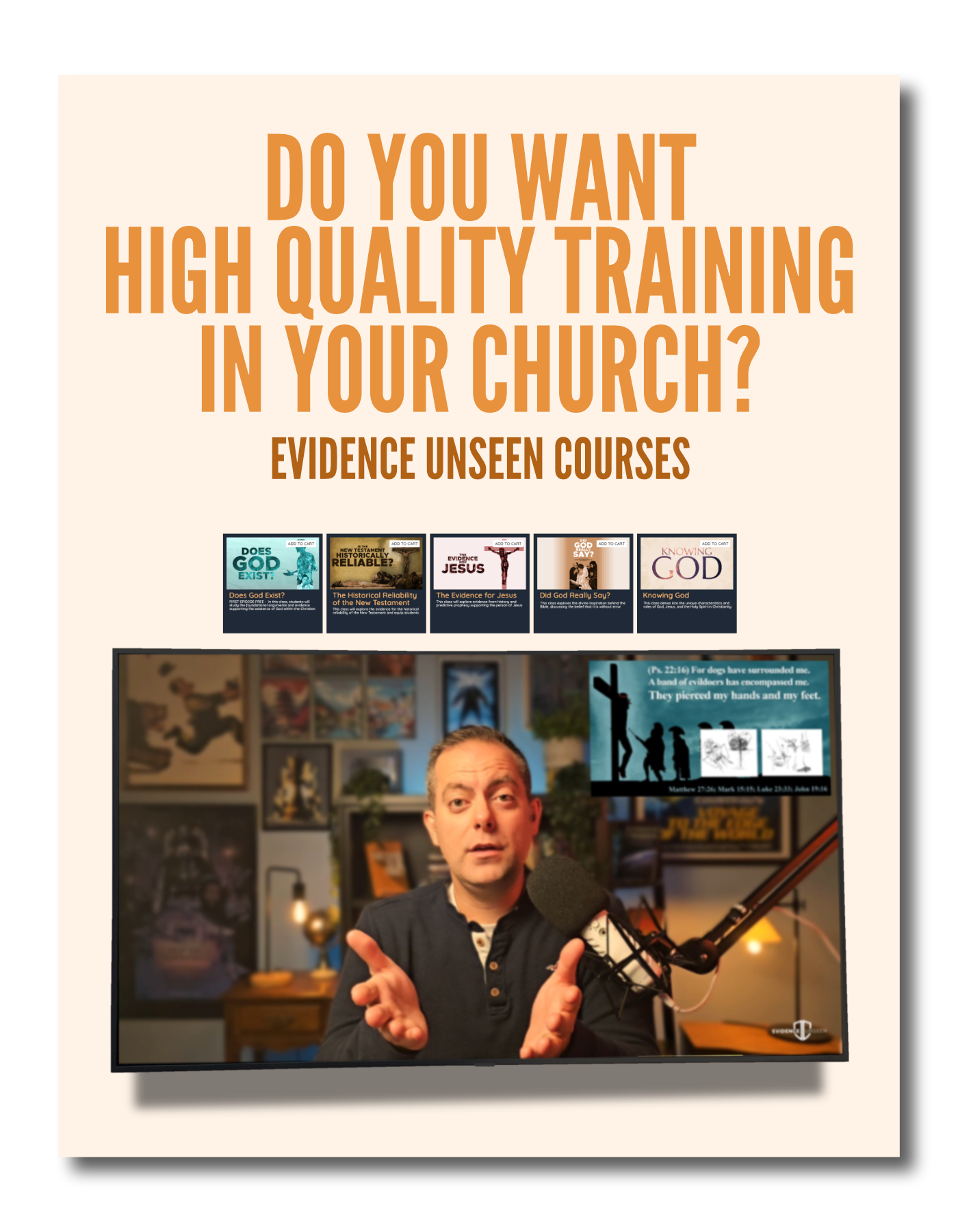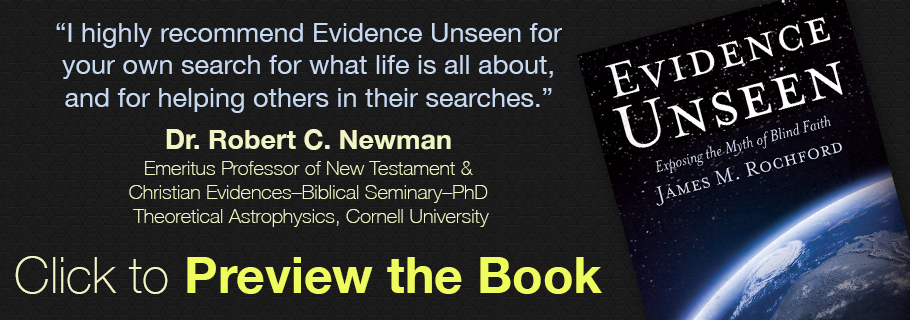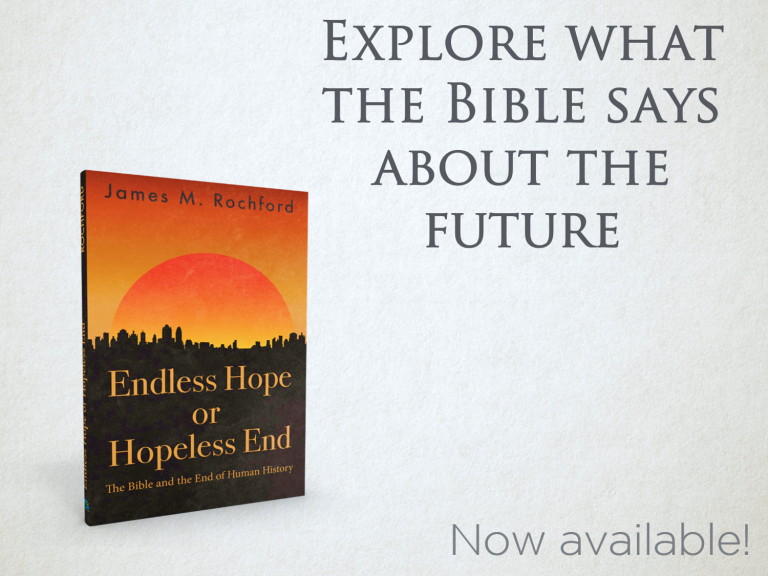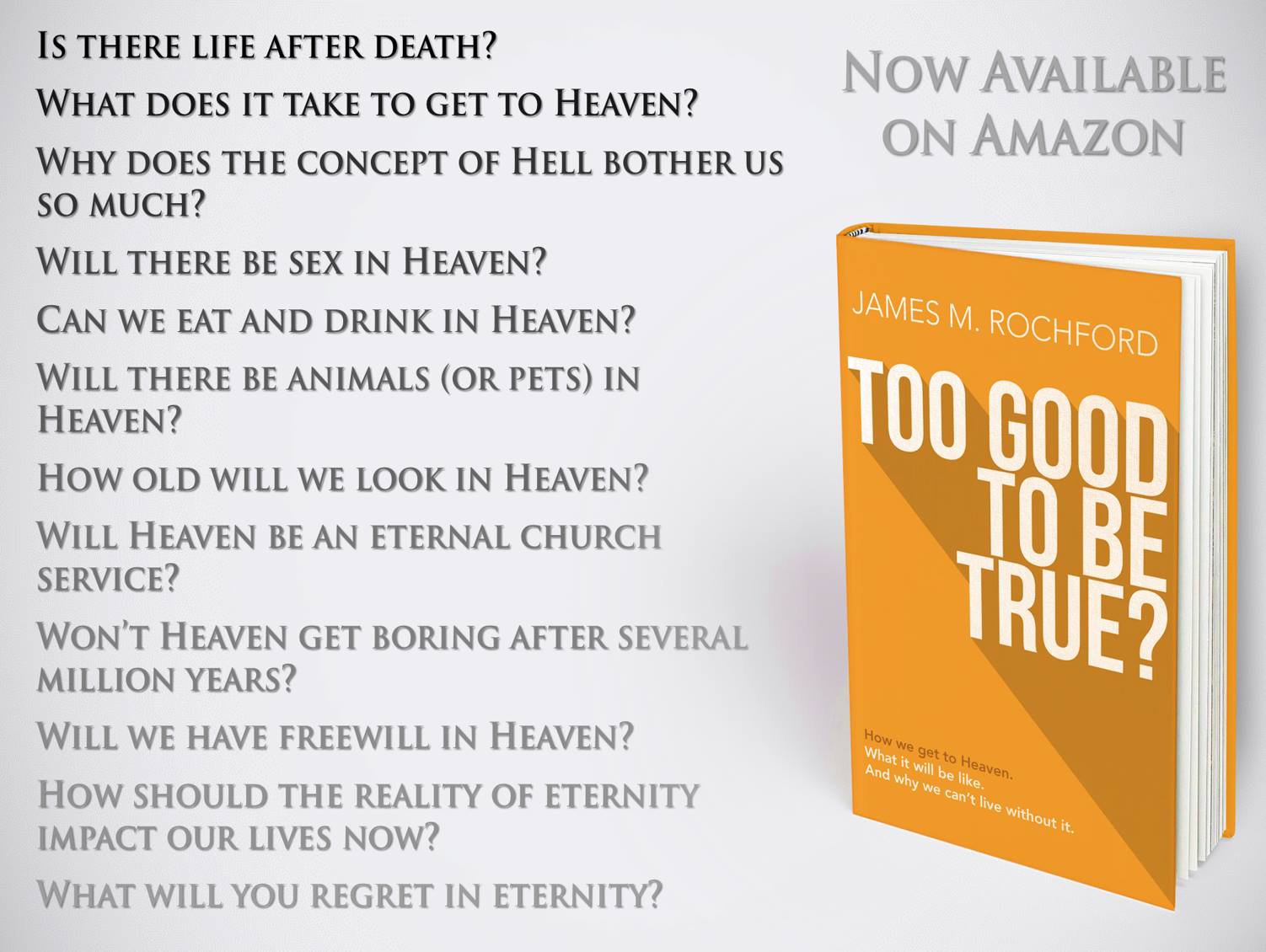Genesis
Is Genesis History? Are the early chapters of Genesis a historical account? By “history,” we simply mean that the events recorded in the opening chapters of Genesis actually occurred in reality. To borrow a phrase from the late Francis Schaeffer, the events in Genesis occurred in real “space and time.” It is beyond our aim to give a robust case for why the events in Genesis are true. The aim of this paper is to identify what the author intended when he wrote these accounts. Did he intend them to be accurate accounts of the past? We think so.
Did Genesis Borrow the Creation and Flood from Mesopotamian Myths? Several ancient Near Eastern mythologies predate the Hebrew Scriptures by several centuries, containing many similarities with Genesis. Consequently, critical scholars argue that Genesis copied from these creation and flood mythologies.
Theistic Evolution: A Critical Evaluation Theistic evolution (or “evolutionary creationism”) is the view that God created everything—from molecules to modern people—through completely natural processes. How does this integrate with biblical theology?
Young Earth Creationism: Is it the ONLY View? Young Earth Creationism (YEC) is the view that God created the universe in six, consecutive, and literal 24-hour days. By adding together the genealogies of Genesis 5 and 11, they date the age of humans (and thus the universe) anywhere from 6,000 to 10,000 years ago. Is this the only way to interpret the early chapters of Genesis?
Young Earth Creationism: A Biblical Evaluation Do the genealogies of Genesis date the age of the Earth? Does the Hebrew word “day” (yôm) always refer to a 24-hour period of time? Does the Hebrew word “day” (yôm) refer to a long age of time in Genesis 1? Does “evening and morning” require a 24-hour period of time? Does Exodus 20:9-11 require that the days of Genesis were 24-hour periods?
Young Earth Creationism: A Scientific Evaluation What is the scientific evidence for an old Earth and an even older Universe? To put this frankly, the evidence is overwhelming, and it comes from several independent fields of scientific study.
Old Earth Creation: Day-Age, Analogical Days, and Intermittent Days Old Earth Creation holds to the current scientific consensus regarding the age of the Earth (4.5 billion years), as well as the age of the universe (13.7 billion years). However, Old Earth Creation is a broad term. Technically, everything other than Young Earth Creation would fit within this view. For clarity, we will consider several prominent forms of Old Earth Creation that distinguish it from the other views: Day-Age, Analogical Day, and Intermittent Day interpretations.
Gap Theory Interpretation Gap Theory is also called the Ruin-Restitution Theory or the Recreation View. As the name suggests, this view holds that there is a gap of time between Genesis 1:1 and Genesis 1:2. How much time transpired? Scripture doesn’t say, but most gap theorists agree with the standard ages of the universe and the Planet Earth. During this gap of time, the Earth “became” formless and void. Gap theorists often claim that this was a divine judgment—perhaps caused by the fall of Satan. Genesis 1:3 and following describe God’s recreation of the world (or perhaps a local region).
Creation of the Promised Land John Sailhamer holds to a view which he calls “historical creationism,” or what we might call the “Creation of the Promised Land.” Put simply, everything after Genesis 1:2 describes the preparation—not the creation—of the Promised Land for human beings.
Literary Framework Interpretation This perspective holds that Genesis 1 is arranged around a literary framework. Thus Genesis 1 explains God’s creation topically—not sequentially or chronologically.
Revelatory Day Interpretation The Six-Day Revelatory Interpretation states that God revealed how he created the universe to Moses over the course of a literal week—not that he actually created the universe in a literal week. Proponents of this view include P.J. Wiseman, Donald J. Wiseman, and Bernard Ramm.
Days of Divine Fiat Interpretation From this perspective, the six days of creation refer to God’s perspective from heaven—not Earth. While God announced his decree over six consecutive 24-hour days in heaven, the results took place over indeterminate periods of time on Earth. According to Hayward, God’s commands are followed by parentheses, explaining the effect on Earth.
Functional Interpretation of Genesis: A Critical Evaluation of John Walton John Walton is the premier proponent of the Functional View of creation, though Dennis Venema (a biologist) and Scot McKnight (a NT scholar) also share this perspective. According to this view, Genesis 1 does not describe the origin of material things, but rather their order and function.
Genesis as Mytho-History: A Critical Evaluation of William Lane Craig Recently, Dr. William Lane Craig has argued that Genesis 1-11 is primarily in the genre of “mytho-history.” What does he mean by this, and what should we think of his proposal?
Design and the God of the Gaps When Christians give evidence for the existence of God from science, atheists often refer to this as a “God of the gaps” type of argument. This article explores this debated topic.
The Origin of Life Where did life come from? How did matter and energy move from inorganic chunks of matter into organic life forms of life? We address this subject in this article.
Evolution and Creation Biologists often refer to neo-Darwinian evolution as an undeniable fact –beyond all feasible doubt. This article surveys the evidence and offers a unique perspective.
(Gen. 1:1) Does the Bible teach that God created the universe or just the Planet Earth?
(Gen. 1:1) Does the Bible teach creatio ex nihilo (or a creation out of nothing)?
(Gen. 1:3) How could God create light after the creation of the Earth?
(Gen. 1:6) Does Genesis teach a three-story universe?
(Gen. 1:9) Did water cover the early Earth?
(Gen. 1:12) Does Genesis record the existence of life out of order?
(Gen. 1:14) Does Genesis teach that the sun and moon were created after the Earth?
(Gen. 1:21) Why doesn’t the Bible mention dinosaurs?
(Gen. 1:26) Does this passage prove the Trinity?
(Gen. 1:26-27) Were Adam and Eve the first two literal people on Earth?
(Gen. 1:26-27) Can theistic evolution account for Adam and Eve?
(Gen. 1:28) Does this passage justify deforestation, pollution, and animal cruelty?
(Gen. 1:29-30) Does this passage claim that lions and tigers were vegetarians?
(Gen. 2:2-3) Why does God need to rest?
(Gen. 2:4) Why does the creation story repeat itself?
(Gen. 2:10-14) Are these mythical rivers?
(Gen. 2:17) Did death really begin at the fall of humans?
(Gen. 2:18) Are women merely a “helper” for men?
(Gen. 2:19) Were animals created after the first humans?
(Gen. 3:1) Did Adam and Eve really talk to a snake?
(Gen. 3:9) Is God all-knowing or not?
(Gen. 3:15) Is this the first prophecy of Jesus?
(Gen. 3:15) Does this passage support the Roman Catholic view of Mary as co-redemptrix with Christ?
(Gen. 3:16) Does this passage sanction men ruling over women?
(Gen. 4:3-5) Was Abel’s sacrifice better because it was a blood sacrifice?
(Gen. 5:5) Did these people really live this long?
(Gen. 6-8) Did the Flood really cover the entire Earth?
(Gen. 6:3) Do humans really live for 120 years?
(Gen. 6:4) Who or what were the Nephilim?
(Gen. 6:6) Did God make a mistake in creating mankind?
(Gen. 8:1) Did God forget Noah?
(Gen. 9:13) Does this passage imply that rainbows began during the time of Noah?
(Gen. 9:21-25) Did Ham rape Noah?
(Gen. 11:1-9) Did ancient humans really build the Tower of Babel?
(Gen. 16:1-2) Isn’t this odd that Sarai would want Abraham to impregnate Hagar?
(Gen. 17:10) Isn’t circumcision a cruel and unusual act?
(Gen. 21:32-34) Were the Philistines around at this time or not (c.f. Gen. 26:1-18)?
(Gen. 22:1) Why would God test Abraham if he is all-knowing?
(Gen. 22:2) Why does Genesis 22 refer to Isaac as Abraham’s “only son”?
(Gen. 22:1-19) Why did God command a human sacrifice?
(Gen. 36:31) How could Moses write this before the monarchy?
(Gen. 37-50) Is the story of Joseph a myth?
(Gen. 37-50) What are the parallels between Joseph and Jesus? Does this story prefigure Jesus?
(Gen. 49:10) Was Jacob predicting Jesus in this passage?
Exodus
(Ex. 2:1-9) Should believers make irrational decisions like sailing babies down rivers?
(Ex. 2:1-10) Was the Moses birth story copied from pagan parallels?
(Ex. 2:24) If God is omniscient, how could he “remember” something?
(Ex. 3:3) Are miracles like a “burning bush” just pre-scientific myths?
(Ex. 3:5) Why does God give Moses an arbitrary command like removing his sandals?
(Ex. 3:14) What does “Yahweh” mean?
(Ex. 3:22) Why would God command the Hebrews to steal from the Egyptians?
(Ex. 4:21) How could God harden Pharaoh’s heart?
(Ex. 4:24) Why did God want to kill Moses?
(Ex. 5:3) Why would God kill his own people with pestilence or a sword?
(Ex. 6:26-27) Why are these verses written in the third person, if Moses wrote them?
(Ex. 7:11; 22; 8:7) How could the sorcerers perform supernatural signs, if they were not from God?
(Ex. 7:14) Why weren’t these 10 plagues recorded by the Egyptians?
(Ex. 7:14) Were the judgments of the 10 plagues arbitrary?
(Ex. 7:14) Is there a feasible naturalistic explanation for the 10 plagues?
(Ex. 11:3) How could Moses write this, if he was more humble than all men?
(Ex. 12:1-22) Does the Passover foreshadow the work of Christ?
(Ex. 12:29) Why would God slay the firstborn of the Egyptians?
(Ex. 12:37) Were there really two million Jews in the Exodus?
(Ex. 13:18) Did the Jews cross the “Red Sea” or the “Reed Sea”?
(Ex. 14:21-29) How could two million people cross the Red Sea in such a short time?
(Ex. 16:22) Why does the Sabbath come up at this point in the Exodus?
(Ex. 16:34) How could Moses mention the Ark of the Testimony before it was even created?
(Ex. 20:5) Is it wrong for God to be jealous?
(Ex. 20:5) Is it fair for God to punish someone for their father’s sins?
(Ex. 20:13) Is killing right or wrong?
(Ex. 21:21) Are slaves persons or property?
(Ex. 21:22-23) Are fetuses human beings or not?
(Ex. 21:29-30) Can we pay a ransom for murder or not?
(Ex. 22:18) Why were false teachers put to death?
(Ex. 22:29) Does this passage condone human sacrifice?
(Ex. 23:19) Why couldn’t the Jews boil a young goat in the milk of its mother?
(Ex. 24:10) Can we see God or not? (c.f. Ex. 19:12-13)
(Ex. 25:10-22) Did the Tabernacle worship and the ark of testimony foreshadow the work of Christ?
(Ex. 30:23) Does the “fragrant cane” actually refer to marijuana?
(Ex. 31:18) Does God have fingers?
(Ex. 32:11-14) Did God change his mind?
(Ex. 33:20) Can we see God or not?
Leviticus
(Lev. 8:8) What are Urim and Thummim?
(Lev. 10:1-2) What is the “strange fire” mentioned here?
(Lev. 11:5-6) Do these animals chew the cud or not?
(Lev. 13:47-59) How could leprosy affect clothing?
(Lev. 16:8) What does “Azazel” mean?
(Lev. 16:16-22) Does the sacrificial system foreshadow Christ’s ultimate sacrifice?
(Lev. 19:26) Why were false teachers put to death? (cf. Deut. 13:5)?
(Lev. 19:27-28) Why couldn’t the Jews trim their beards or their hair or get tattoos?
(Lev. 20:9) Why were disobedient kids killed? (cf. Deut. 21:18-21)?
(Lev. 20:10) Why were adulterers put to death?
Numbers
(Num. 1:46) Was the census really this big? (cf. Ex. 12:37)
(Num. 5:11-31) Is this a case of magic?
(Num. 6:1-21) The Nazarite vow?
(Num. 8:11-14) What is a “wave offering”?
(Num. 12:3) How could Moses write this, if he was more humble than all men?
(Num. 21:4-9) How does the story of the brazen serpent prefigure Jesus? (cf. Jn. 3:14-15)
(Num. 22:28) Talking donkeys? (Gen. 3:1)
(Num. 23:19) Does this passage forbid the possibility of the incarnation?
(Num. 24:17) Does this passage predict Jesus?
(Num. 25:5, 8) Why is this punishment so severe?
(Num. 31:18) Why were the virgins spared from being killed?
Deuteronomy
(Deut. 2:12) How could Moses write this if he had never been to the Promised Land?
(Deut. 2:30) Does God harden hearts?
(Deut. 3:24; c.f. 4:34) Does this passage support henotheism?
(Deut. 6:4) Does this passage invalidate the Trinity?
(Deut. 13:5) Why were false teachers put to death (c.f. Deut. 18:20; Lev. 19:26; Ex. 22:18)?
(Deut. 17:14-20) How can this passage speak about the monarchy 400 years in advance?
(Deut. 18:15) Why does Peter apply this passage to Jesus?
(Deut. 18:20) Why were false teachers put to death?
(Deut. 20:13-14) Does this passage teach that Israelite men could rape and pillage foreign women?
(Deut. 20:16-18) What about the Canaanite Genocide?
(Deut. 21:10-14) Does this sanction raping women from war?
(Deut. 21:18-21) Why were disobedient kids killed (c.f. Lev. 20:9)?
(Deut. 22:23-29) Does this passage allow for rape?
(Deut. 24:1-4) What does this passage say about divorce?
(Deut. 25:1-3) Why were men flogged?
(Deut. 25:11-12) Why were women’s hands cut off for grabbing a man’s genitals?
(Deut. 34:5-12) How could Moses record his own death in Deuteronomy 34?




